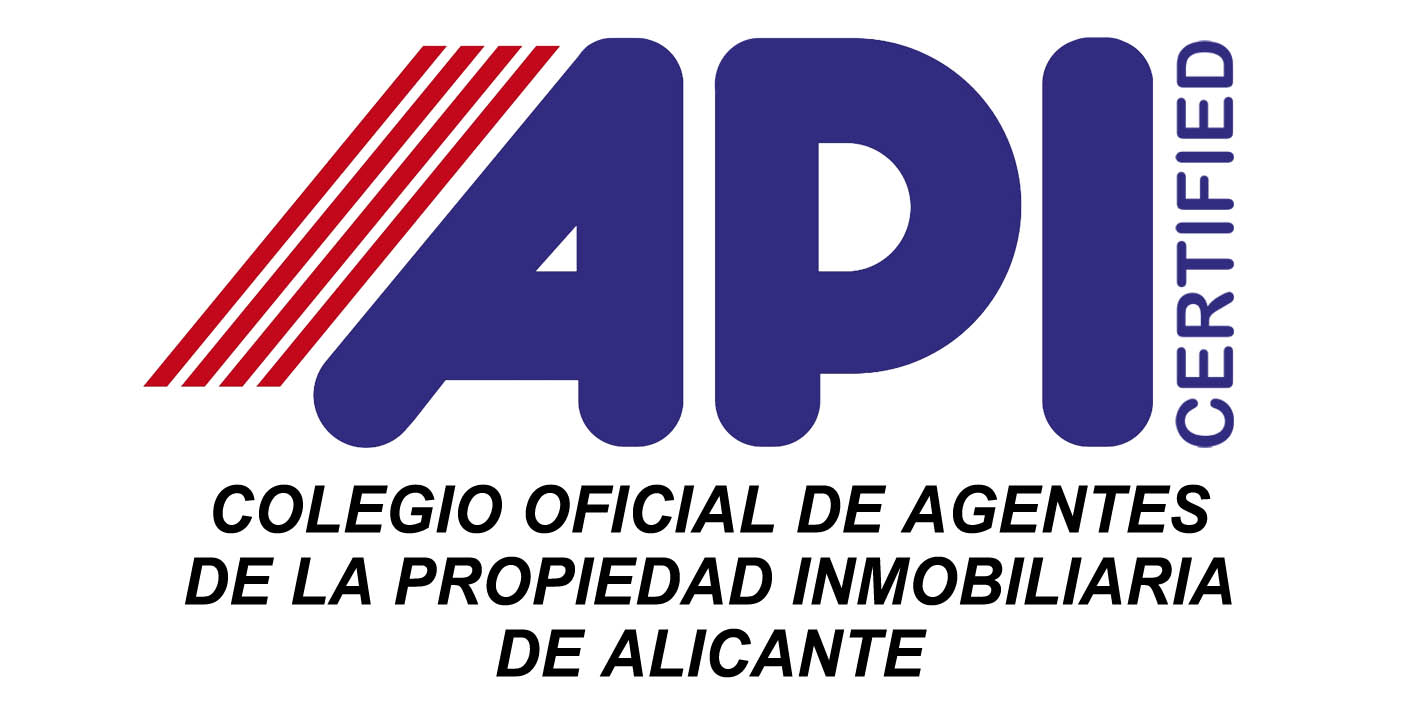Moving to Spain after Brexit?

Flights abroad may be able to resume from mid-May, and after months of being grounded in the drizzly UK, many are dreaming of moving to sunny Spain.
With its beautiful beaches and warm climate, it is easy to see why Spain is one of the top destinations for Brits to move to.
However, since the Brexit transitional period ended on December 31 2020, can you still up sticks and move to the EU country?
Here is all you need to know.
Can I still move to Spain?
Yes, Brits can still move to Spain following Brexit – however, the rules are a lot more stringent and complicated.
You must register as a resident or apply for the appropriate visa if you want to stay in Spain for more than three months.
You will have to apply for permanent residency within three months of your arrival in Spain, whether you plan on working in Spain or not, so you may want to start sooner than later.
What are the requirements to move to Spain?
Here is a list of requirements for UK citizens wishing to move to Spain.
You must:
- Pay the fees for processing the residence permit and the work permit.
- Present a contract signed by the employer and you that guarantees a continuous activity during the period of validity of the authorisation to reside and work.
- Possess the training and, where appropriate, the professional qualification legally required for the exercise of the profession.
You must not:
- Be a citizen of a State of the European Union, the European Economic Area or Switzerland, or a family member of citizens of these countries to which the Union citizen regime applies.
- Be found irregularly in Spanish territory.
- Have a criminal record.
- Be prohibited from entering Spain.
- Be, where appropriate, within the period of commitment not to return to Spain.
You may also have to prove that you earn at least £2,000 per month (approximately €2,326).
The criteria depends on your status. For example, it might be different for employees, pensioners, or students.
You should contact the Spanish Embassy in the UK for more details.
Moving to Spain as a prospective employee at a Spanish company
Your prospective employer should submit your visa application to the delegación Provincial del Ministerio de Trabajo e Inmigración (provincial office of the Ministry of Labour) on your behalf.
While this is being processed, you get a copy of the application with the stamp from that office and file number. You can send it to the Spanish embassy as part of your visa application.
It can take up to eight months to process a work permit application.
The work permit will have to be renewed after one year.
Moving to Spain as a worker for a non-Spanish company
If you plan on working in Spain for a company not based in Spain, you will need:
- To provide your contract of employment or other proof of your employment status (payslips).
- Apply for ‘permiso de residencia no lucrativa’ (non-profit visa).
- Prove you have sufficient funds to live on from a permanent income.
If you are working for a company in Spain or plan to do so, then your employer should be responsible for handling your application to stay in Spain.
Moving to Spain as a non-worker
If you would like to reside in Spain, but not work in the country (for example, your spouse may be employed but you are not), you will need to:
- Apply for ‘permiso de residencia no lucrativa’ (non-profit visa).
- Prove you have money to live on (a consistent, permanent income).
- Demonstrate that a minimum balance has been maintained across the last year, showing your full name and account number.
Moving to Spain as a self-employed worker
If you work for yourself, you can still move to Spain and declare yourself ‘self-employed’ or ‘Autonomo’.
There are a lot of steps you will have to take:
- Apply for a permanent residence.
- Demonstrate that the commercial activity you are undertaking is compliant with Spanish rules.
- Possess appropriate qualifications.
- Have adequate capital to invest in the activity to make it feasible.
- Provide details of the number of employees (if any).
- Have enough money to support yourself, as well as funds for the activity.
- Provide the Spanish authorities with a viable business plan.
- Prove you are healthy.
Moving to Spain as a Retiree
If you are looking to retire to Spain, you will need to abide by the below conditions:
- Prove you are healthy and that you pose no serious risk to the public.
- Prove you, or the main earner, has a monthly income of €2130 (approximately £1,846) and an extra €532 (approximately £461) for each dependant.
- Demonstrate the ability to maintain this income for one year.
- If you are receiving a UK state pension, request an S1 form (previously E121) from the Overseas Healthcare Team. If you receive an exportable DWP benefit, you can apply for an S1 form from the office that pays your exportable benefit.
- If you are eligible for an S1, you are also eligible to apply for a UK-issued European Health Insurance Card (EHIC).
Moving to Spain as a Student
If you have a student residence card, you can work up to 20 hours a week during your studies in Spain. Your employer must arrange a work permit on your behalf.
As a student moving to Spain, you will need:
- Proof of your registration in an educational establishment.
- Public or private health cover.
- A formal declaration that you have adequate financial means to support yourself during your stay.
How to apply for a visa
The visa application must be made in the UK. You are not able to apply in Spain having entered the country as a tourist.
The application for a visa should be made within 90 days of your intended travel date.
You will have to send all relevant documents to the Spanish Consulate:
- National visa form (available for download from your local Spanish Consulate website).
- Private Health insurance policy from a company authorised to operate in Spain.
- Bank certificate, demonstrating the possession of required funds per year.
- Photos, 3×4 cm with white background.
- Original Passport (minimum validity of one year and at least two blank pages).
- A medical certificate, demonstrating that you do not suffer from any restricted diseases.
- Criminal record translated to Spanish and legalised (issued by the country or countries where the applicant has resided in the last 5 years).
- Documents (original and stamped) to prove you have the required financial means through periodic and sufficient income or have an estate to guarantee the required income.
Confirmation will be within one month and the visa will be stamped in your passport and you will then be free to travel to Spain. The visa will also include your NIE Number.
Visas can be renewed every year until you get permanent residency, which is available after five years in the country.
Visas cost €80 (£73) for adults and €40 (£36.50) for children aged 6-12. Children below the age of six will receive their visa for free.
What do you need to apply for when you arrive in Spain?
Once in Spain, you will need to register on the Padron (a list kept by the town hall of all the people who live in that town) in your local municipality.
To do this, you can go to your town hall your passport, property rental contract or title deed (for owners), electricity or water bill, and proof of Spanish residency. There may be a small fee (a few euros, depending on the town) to pay.
You will also have to get a Tarjeta de Identidad de Extranjero (TIE), which is a biometric residence card. This card will prove your rights under the Withdrawal Agreement – meaning that you can stay in Spain.
There is a small fee (called a 790 fee) for registering, and it varies depending on your situation. You can find details on the Spanish Immigration website.
Everyone working in Spain must also register with the Dirección General de la Tesorería General de la Seguridad Social (Spanish Social Security authorities, the General Social Security Fund – TGSS). This can be done on the social security website.
If you are an employee your employer will do this for you; if you are self-employed it is your responsibility.
How do you register for healthcare in Spain?
All residents in Spain need to register to access healthcare.
Once registered for healthcare, basic state services are free, but there are some things that patients need to pay for.
UK nationals usually access the Spanish national health system in one of the following ways:
- Through entitlement to healthcare if they’re employed or self-employed in Spain.
- Paying directly into the public health insurance scheme (Convenio Especial).
- Registering a UK-issued S1 form with the social security office.
- Using a European Health Insurance Card (EHIC) or Global Health Insurance Card (GHIC) for temporary stays.
- Through entitlement to healthcare as a permanent resident if they’ve lived in Spain for five years.
Will I still receive my pension in Spain?
Yes, you can still get your pension in Spain.
You will need to tell the UK government offices that deal with your benefits, pension and tax if you are moving or retiring abroad.
If you retire in Spain, you can claim:
- Your UK State Pension or new UK State Pension.
- Your Spanish and UK State Pension from the Instituto Nacional de la Seguridad Social if you were living in Spain before January 1, 2021.
The Money and Pension Service has further guidance on pension and retirement changes more information on cross-border pensions.
How long can I stay in Spain without a visa?
You can visit the bloc for up to 90 days in any 180 day period without needing a Visa, which is a perfect time-frame to do house viewings and find your dream home.
At Spanish border control, you may need to use separate lanes from EU, EEA and Swiss citizens when queueing. Your passport may be stamped on entry and exit.
At border control, you may also need to:
- Show a return or onward ticket.
- Prove that you have enough money for your stay.
What are the changes for those already living in Spain?
The rules are simpler for UK citizens who have been living in Spain before Brexit.
The Withdrawal Agreement protects the rights of UK citizens in the EU (and vice versa) and gives guarantees that they can stay – as long as you register as a resident and obtain a TIE card (any children you have will also need to be registered).
If you have lived in Spain for at least five years, then you can apply for permanent residency.
You will need to submit your residence application to the immigration office, or on gov.uk, by providing the following documents:
- Application form EX20 (which can be found on the Spanish government website).
- Passport.
- Documentation which demonstrates your residence in Spain before January 1, 2021.
- Documentation which demonstrates you meet the EU residence criteria on income and healthcare.
Although all of this does sound daunting, apart from your personal responsibilities we have colleagues here in Spain who can help you with all of the Spanish side, ie residency and TIE cards, health insurance etc. Not only will we endeavour to find your dream home, we are with you every step of the way.










